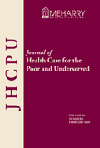While smoking has declined overall among the United States population, rates are disproportionately higher among communities of color, lesbian, gay, bisexual, and transgender (LGBT), and low socioeconomic status populations (Low SES). Since 2006, the Centers for Disease Control and Prevention (CDC) Office on Smoking and Health (OSH) has funded the National Networks for Tobacco Control and Prevention to advance the science and practice of tobacco control in the United States for members of … [Read more...]
New Resource to Help Patient Quit Tobacco

The Asian Smokers’ Quitline is a free nationwide Asian-language quit smoking service operated by the Moores Cancer Center at the University of California, San Diego. The Quitline offers self-help materials, referral to local programs, one-on-one telephone counseling to quit smoking, and a free two-week starter kit of nicotine patches. Access in-language services using these numbers: Chinese: 1-800-838-8917 Korean: 1-800-556-5564 Vietnamese: 1-800-778-8440 … [Read more...]
Tobacco App Now Available for iPhone

App Helps You Assess and Counsel Patients About Nicotine The new ACU smartphone app that helps clinicians talk to patients about tobacco use is now available for your iPhone. The app includes a six brief questions that clinicians can ask patients to measure their nicotine dependence. Preview the app here. To download and install it, just open the App Store icon on your phone and search for "ACU Tobacco". The app is free to download and install. Android phone users can preview the app … [Read more...]
New Smartphone App on Tobacco Cessation

ACU has launched a new smartphone app that helps clinicians talk to patients about tobacco use. The app includes a six brief questions that clinicians can ask patients to measure their nicotine dependence. Release of the app coincides with the annual Great American Smokeout, a day when Americans are encouraged to make a plan to quit, or to plan in advance and quit smoking that day. The ACU Low Health Literacy Nicotine Addition Test scores the patient's responses to the six questions and … [Read more...]
Featured Mobile Apps

Mobile apps are nifty tools for cell phones and other wireless devices that help users manage their health. This month’s featured mobile app, UMSkinCheck, is designed to facilitate regular skin checks for cancer screening. UMSkinCheck was developed at the University of Michigan in a joint effort involving clinical and technology experts. It is available for iPhones and iPads and downloadable from iTunes. Read more about it here. Tell us if you know of a mobile app that would be of interest to … [Read more...]
Bridging the Disparities Gap with Mobile Technology

MHealth provides vital tools to support the goals of health care reform to increase health care access, improve care delivery systems, engage in culturally competent outreach and education with technology that is easy to use, affordable and scalable, and is already adopted by patients of all ages and socioeconomic status. Mobile health technology (mHealth) is changing the way the world approaches health care access and delivery. Text messaging is used to support patient adherence with chronic … [Read more...]
Smoking and Related Illnesses Disproportionately Affect Low-Income People

In California, 18.6 percent of individuals with low socio-economic status (SES) smoke – a rate more than three times higher than among more affluent populations. A new California-focused report, Smoking in Low Socioeconomic Status Populations: Prevalence, Health Impact, Challenges and Recommendations, from the Break Free Alliance shows that disadvantaged populations smoke at a significantly higher rate than the general population and are much less likely to quit - which means they are also … [Read more...]
Health Disparities and Quality Reports Underscore Need for Improvement

Two new reports from Agency for Healthcare Research and Quality (AHRQ), the National Healthcare Disparities Report and the companion National Healthcare Quality Report, show that during 2002 – 2008, health disparities stayed the same or worsened. The reports provide data on about 250 health care measures. Among the report findings: the percentage of current adult smokers who were advised to quit smoking showed no change. Earlier this year, ACU launched TobaccoFree with the goal of decreasing … [Read more...]





Follow Us!